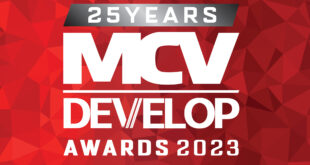If the last couple of years have taught us anything, it’s that we can never take too much for granted. Covid-19 may or may not be something that we continue to look at through the rear view mirror, but its legacy of remote and hybrid working continues to provide opportunities while posing questions around productivity.
Throw in the ever-present issue of a persistent skills shortage and a cost of living crisis that was nowhere to be seen twelve months ago, and it’s clear that it’s a unique and challenging time for game industry recruitment. To help us get a clear picture of how things have been, how they are now and how they might develop over the coming year, we’ve asked a crack team of in-house and agency recruitment experts to give us their take on the state of games industry recruitment, both for those with positions to fill and those eager to find their next challenge. Next up is Silja Bernecker, team lead talent acquisition at InnoGames.
What have been the main challenges that recruiters have faced during 2022 and how have they/you worked to overcome them?
The “Great Reshuffle” finally reached Germany at the beginning of 2022. Suddenly, we were confronted with a wave of long-term employees leaving for companies offering fully remote work and total work hour flexibility at salaries that were out of local market reach. Eventually, 10% of our positions remained unstaffed. In response, we first expanded our Talent Acquisition Team.
Later, we took additional measures such as increasing our salaries, optimizing our offices for our hybrid work model, and listening even more closely to the needs and concerns of our employees. We also became the first German games company to publish its salary bands in July 2022.
We had shared them internally in spring 2021 and had always planned to publish them externally as well – when the time was right. Now that time had come. What we didn’t do in response to the Great Reshuffle was to lower our high expectations with regards to candidates’ professional competencies and their cultural fit. Doing so probably would have generated short-term gains but it would have come around to bite us in the long-term.
How is the worsening cost of living crisis manifesting itself in terms of recruitment and in-work support?
Fortunately, this hasn’t been much of an issue for us so far. We are determined to keep our salaries in the top quarter of the German market. To that end, we review and adjust the salaries on an ongoing basis. As a result, we remain attractive to candidates while our employees tend to be in a financial situation in which they can compensate for the cost increases. Government subsidies help ease the problem, as does our hybrid work model.
In the past, once you had been hired by InnoGames, you had to move to Hamburg – one of the most attractive, but also one of the most expensive places to live in Germany. Now, our employees can choose to move to (or stay in), more affordable locations, including other European countries. Should the costs of living expand further, I reckon we will see more employees, and increasingly senior employees, go for one of these options.
Is remote / hybrid working here to stay?
Yes, and that’s a good thing. For us, anyway. The hybrid work model we had introduced because of the pandemic turned out to be an improvement for InnoGames, so we decided to keep a – somewhat optimised – version for good. Under our model, employees must come into the office four times a year for a “Hamburg Week”.
Otherwise, they are free to work from where they work best, be it from the office, from home, or from another European country. In short, we are trying to give our staff as much freedom of choice as possible while maintaining Hamburg as our anchor. All in all, for us, the trend towards remote/hybrid work has had more advantages than disadvantages so far, even though it has intensified the global competition for talents and brought us phenomena like the Great Reshuffle.
Do you feel the industry has moved forward in terms of diversity and inclusion this year? How so? Can you offer any examples?
I do feel that’s been the case. In my perception, there were more court cases against discriminatory practices, more initiatives supporting diversity and inclusion, more media reports on the topic, more frequent and intensive discussions about equal pay, and so on. These days, it’s more likely that a games company has to explain why it’s not flying a rainbow flag during Pride Month rather than the other way around. So, yes, the industry keeps moving in the right direction – albeit slowly.
Remote/hybrid work has helped to move things along somewhat. For instance, physically disabled colleagues no longer have to go through the daily hassle of commuting to work. Likewise, introverted and/or sensitive talents can withdraw to the home office when they feel the need. Not least, it has made it easier for parents to work full-time.
What industry initiatives or programmes put in place recently (by your organisation or others) have inspired or impressed you and why?
Forgive me for tooting our own horn, but from a talent acquisition perspective, the publication of our salary bands was the most inspiring initiative I have seen since summer. At the time of publication, we had 19 vacancies, among them roles that took us up to 15 months to fill in previous years. Within 2 months, we were able to fill them all. That’s incredible.
However, what impresses me even more is how our salary transparency has changed the recruiting “atmosphere”, for lack of a better word. We keep receiving unsolicited positive feedback from our candidates. Female candidates say they appreciate it that they no longer have to fear pay gaps. Candidates from outside the industry tell us they didn’t expect to make good money in games. Others say they feel relieved that they no longer have to worry about selling themselves short in salary negotiations. Clearly, we have gained a lot of trust and are more at eye level with our candidates now. As a result, the dynamics of the recruitment process have changed for the better and recruiting has become more enjoyable.
What are your predictions for 2023 in terms of the challenges and opportunities that recruiters might face?
I expect that, especially in tech, the demand for talents will continue to subside. The recent layoffs at Amazon, Facebook, etc. were just the tip of the iceberg. However, that doesn’t mean that recruiting will become much easier. On the contrary: In times of economic turmoil, people tend to look for job security. It will take some particularly good arguments for them to leave their current employers. It will be up to us to deliver those arguments. I see good opportunities for companies that embrace diversity, have strong values, and a culture marked by transparency and fairness.
What’s the one piece of advice you would give someone looking to find or fill a role that you wouldn’t have considered a year ago?
A year ago, I wouldn’t have advised a candidate to think thoroughly about which country he or she wants to live in and work from.

 MCV/DEVELOP News, events, research and jobs from the games industry
MCV/DEVELOP News, events, research and jobs from the games industry




